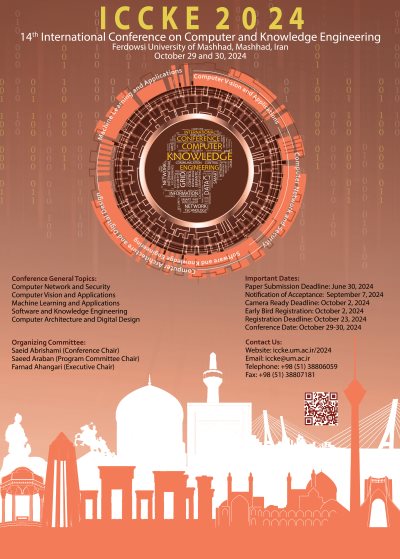0% Complete

Authors :
Keywords :
Abstract :
List of archived papers
Amirhossein Khajehpour - Farid Zandi - Navid Malekghaini - Mahdi Hemmatyar - Naeimeh Omidvar - Mahdi Jafari Siavoshani
Mahshid Zolfaghari - Hamid Fadishei - Mohsen Tajgardan - Reza Khoshkangini
Nastaran Hamedi - Ali Khadem - Sajjad Vardast - Mehdi Delrobaei - Abbas Babajani-Feremi
Ahmadreza Montazerolghaem - Maryam Khosravi - Fatemeh Rezaee
Fatemeh Rooholamini - Reza Azmi - Mobina Khademhossein - Maral Zarvani
Ali Sabet Akbarzadeh - Abedin Vahedian
Sajad Rezaei - Jafar Tanha - Zahra Jafari - SeyedEhsan Roshan - Mohammad-Amin Memar Kochebagh
Pouya Hosseinzadeh - Yasser Sedaghat - Ahad Harati
Milad Sattari Maleki - Seyedeh Niusha Motevallian - Faezehsadat Hosseini - Mohammad Sabokrou - Hamidreza Soltanalizadeh Maleki
Mohammad Ali Javadzadeh Barzaki - Jafar Abdollahi - Mohammad Negaresh - Maryam Salimi - Hadi Zolfeghari - Mohsen Mohammadi - Asma Salmani - Rona Jannati - Firouz Amani



